
Are you struggling with teaching writing to third graders? Do you find it challenging to engage and inspire them to express their thoughts on paper? Look no further! In this post, we will provide you with easy and effective strategies to teach writing to third graders. Writing is an essential skill that not only helps students communicate their ideas but also improves their critical thinking and creativity. However, teaching writing can be a daunting task, especially for young learners. But we can change that! Here are my top 5 ways to incorporate writing into the classroom that keeps student engagement high and their writing improving daily.
Understanding the Writing Process when Teaching Writing to Third Graders
When teaching writing to third graders, it is essential that your students understand the writing process. They need to learn how to create an idea, make a rough draft, edit/revise, and turn it into a masterpiece. I teach two different types of writing to my students…
- Masterpieces– This is where we all write on a topic and go through the entire process. They are doing a pre-write, rough draft, edit/review, and final draft.
- Quick Writes– These are the writings that we do quickly for an assignment or just for fun! This is like writing in your journal. You want it to be well written, but you are not going to go through and rewrite a rough draft into a final draft.
Developing a Structured Writing Curriculum
In order to teach writing to third graders effectively, I suggest creating a scope and sequence for your year with what you will teach and when. You can find a FREE scope and sequence for your year here!
Then, you want to make sure that you are writing masterpieces that catch your students’ attention. When thinking about masterpiece writing, you want to plan at least two weeks to get fully through it. Then, you want to pick a specific genre and skill you want to work on.
For example, I want to do informational writing and work on paragraph structure or maybe a fictional narrative and work on using quotations.
Then, you will go through the writing process with mini-lessons to teach that skill. The students will then apply the lesson that I teach to their own writing. So, two weeks may look like this.
- Read a mentor text and teach that genre of writing to your students.
- Create a pre-write for your topic
- Mini-lesson on your skill and allow students to rough draft.
- Finish rough drafts
- Edit their writing
- Mini-lesson your skill and allow students to revise their writing with a specific focus on the skill you are working on.
- Final drafts
- Final drafts
- Presentations of their masterpieces in some fun way
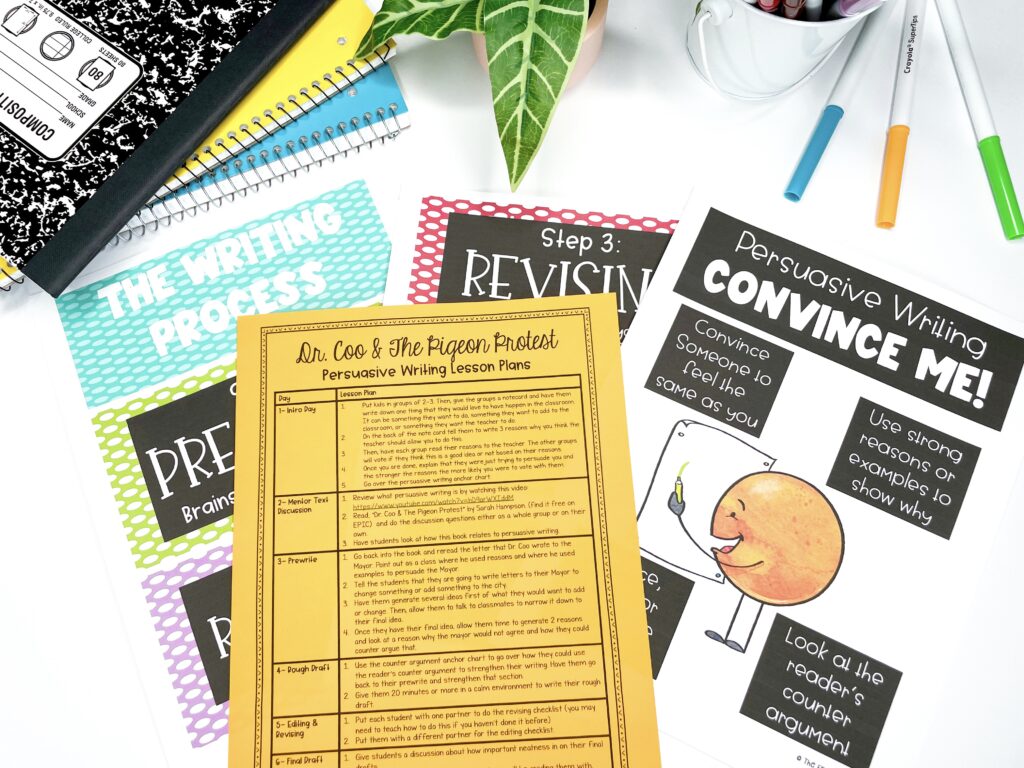
Engaging your Writers
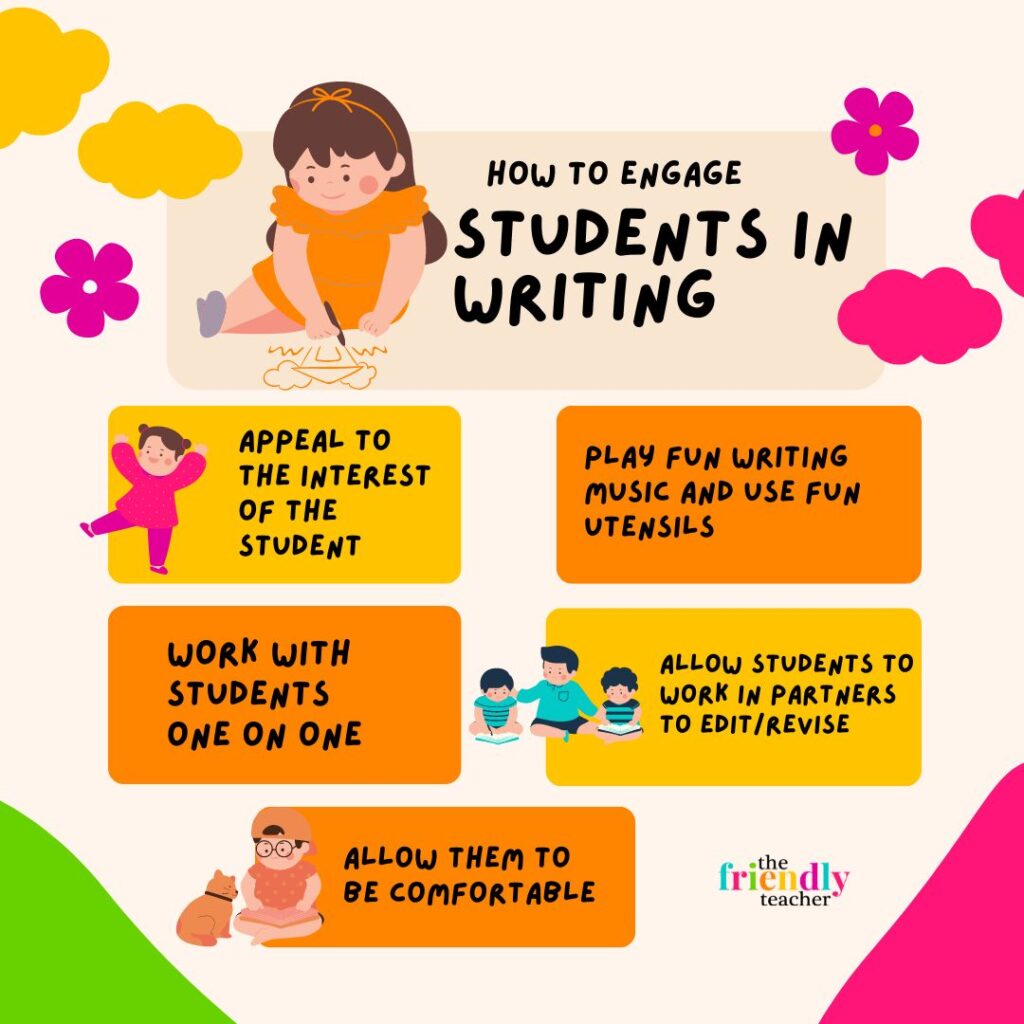
You want your students to stay engaged in the writing process! If they are not engaged, it is miserable. Here are some tips to do so…
- Choose topics that interest them! All of my writing units have highly engaging topics!
- Allow them to edit/revise with partners.
- Give them special pens that they can only use when they are editing and revising.
- Playwriting music as they are writing
- Allow them to sit throughout the room
Incorporating Technology in Writing Lessons
We can be honest: students love tech! Add tech to anything, and they will be instantly engaged. But you want to be careful not to go too far with technology and writing. Students NEED to write on paper! It is essential. Have your students write their rough drafts, edit, and revise on paper. Then they could type their final drafts, research information for their prewrites, and/or watch videos on the different skills you are teaching!
Daily Writing Practices
Now, what is the difference between our masterpiece writing and our daily writing? It is the time and effort we put into it. You want to make sure your students are just writing often without going through the entire writing process.
Here are some ideas on how to add daily writing practices to your classroom…
- Have your students write their favorite part of their day into their daily journal to send home to their parents
- Have students answer a morning question in writing
- Add writing to your literacy centers (you can read about that here)
- Have students write letters to anyone you can think of! You, people in the community, pen pals, etc.
- Have students respond to science or social studies topics in writing!
Providing Feedback and Assessment in Writing
Providing feedback when it comes to writing is essential, but you need to do it in a way that will actually show progress in writing. Writing on a rubric or writing notes on their papers will not truly change behaviors, typically. What will change behavior in writing is meeting with students one on one. During the rough draft, edit, and revise phase, you should be pulling students and focusing on ONE thing. Maybe you have a student whose writing is AWFUL; just pick one thing. Only show him where to put the punctuation, add in the new punctuation, and move on. Don’t try to fix everything in one session, or it will backfire on you later!
Providing feedback during these meetings is essential to creating better writers.
When it comes to assessment, only grade on the specific skill you are focusing on. Yes, you can always add a part of your rubric for punctuation and spelling! But, the main part of your rubric should be focused on the skill that you are working on for that specific masterpiece. Give students the rubric before they start their final drafts.
Empowering Young Writers
Writing can be tough to teach, but it can also be fun. Watching students create a masterpiece they are proud of and share it with others is exhilarating! Make sure to find time for students to show off their writing to their peers, other teachers, parents, etc.! Empower them to write on topics that interest them and also topics that nudge them out of their comfort zone!
Want more writing tips and ideas?! Click the button below!
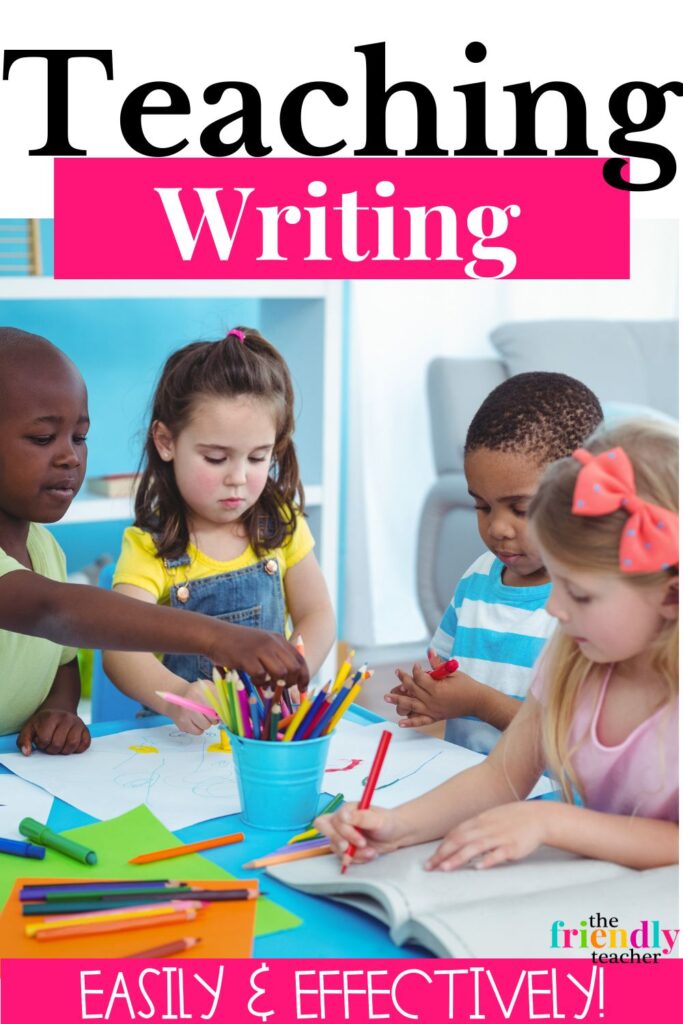
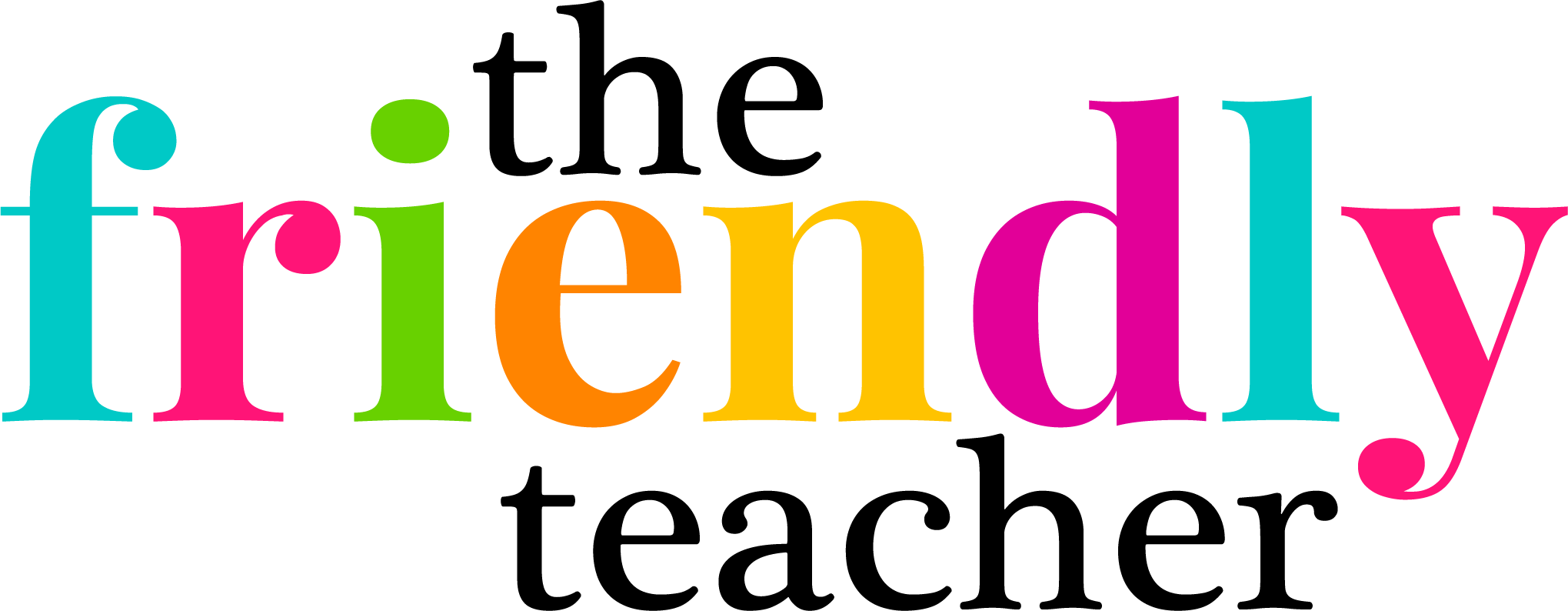


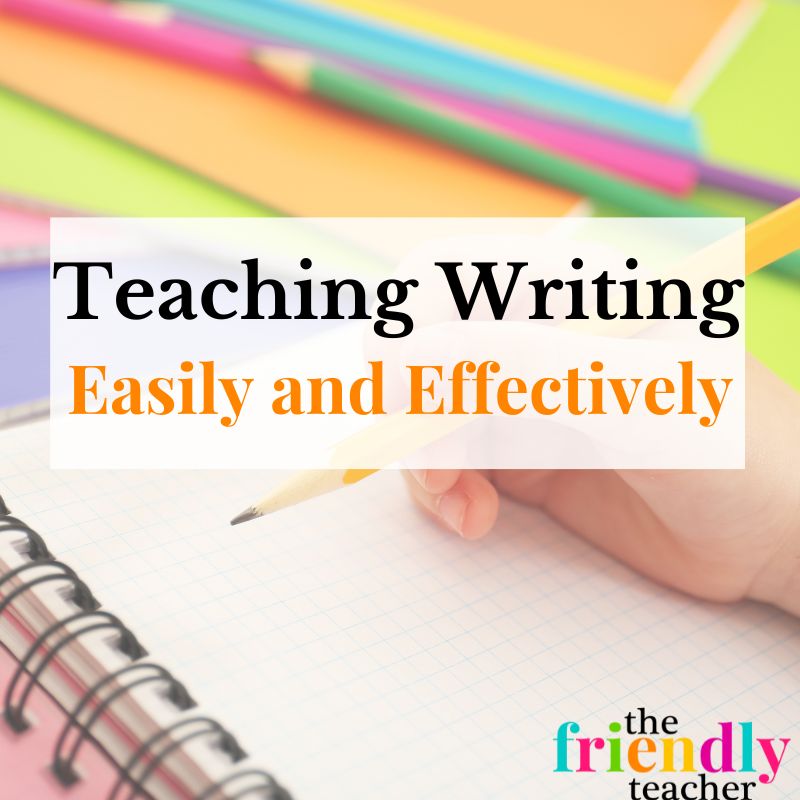



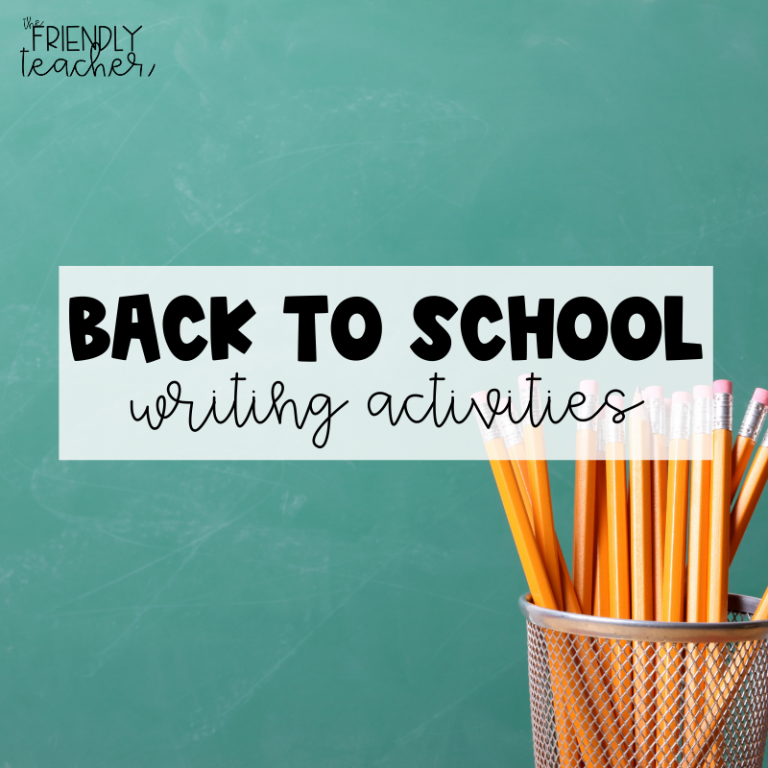
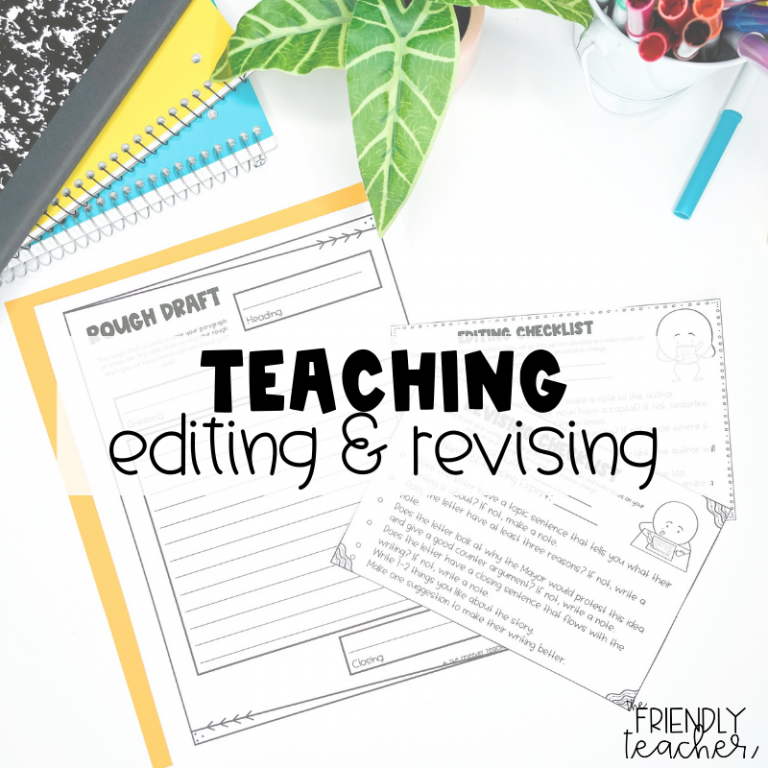
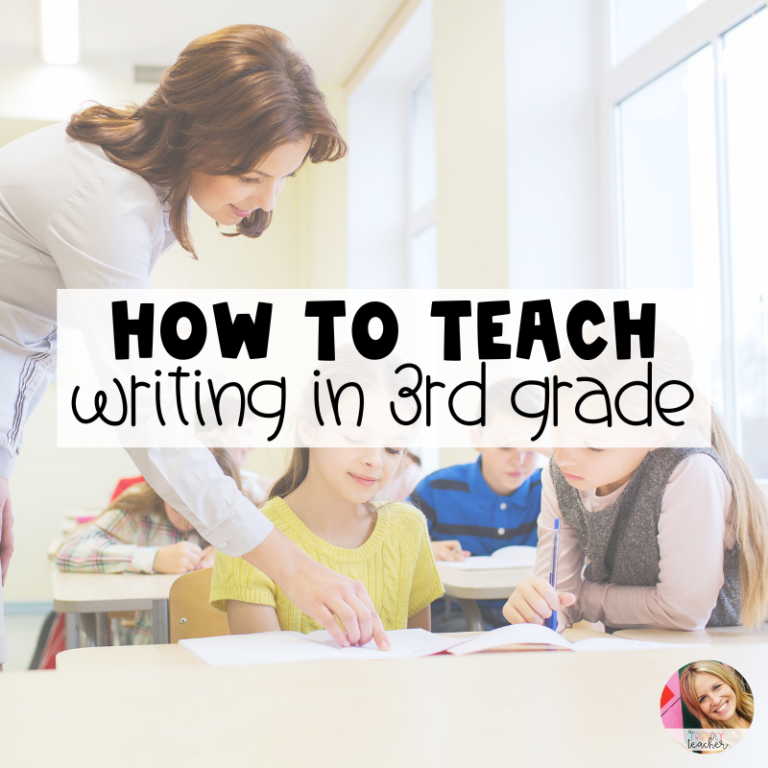


I love this information on writing. definitely what I need because I struggle with teaching writing. Honestly it’s my weakness as a teacher. I saw this was for 3rd grade. I teach 4th can still use it or do you have one more geared from 4th grade? Thank you.
You can for sure use it for fourth grade! The students will just be writing more paragraphs, etc! But it is very applicable for 4th!